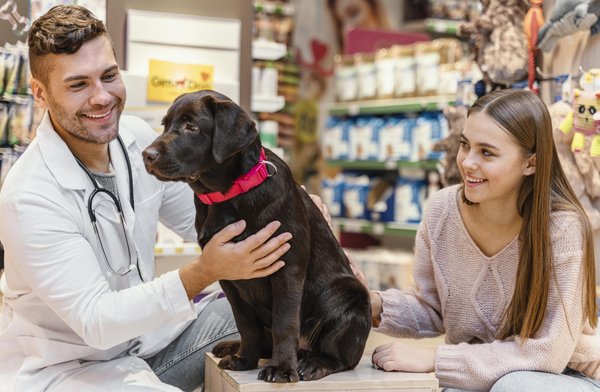
Dogs are our best friends, and we want to make sure they're always happy and healthy. A big part of keeping them healthy is staying on top of their vaccinations and vet appointments. Just like humans, our furry friends need to visit the doctor too! But how often should you take your dog to the vet?
The answer may depend on a few factors such as your dog's age, health, and lifestyle.
According to the American Kennel Club, puppies should go to the vet every 3-4 weeks until they're 14-16 weeks old. After that, they should go every 3-6 months for the rest of their lives.
But why so often when they're young? And why not as often when they're adults? Let's take a look.
Doggie Age
Puppies Need More Care
Puppies need more care because they're still growing and developing. They need to be vaccinated more often because their immune systems aren't fully developed yet. They also need to be checked for parasites and dewormed regularly.
They should go every 3-4 weeks until they are at least 6 months old so that the vet can monitor their growth and development. After they reach 6 months old, they can start going every 6 months unless otherwise specified by the vet.
Puppies also need to be socialized during this time so that they learn how to interact with other dogs and people. This is important for their development and will help them be less anxious and stressed later in life.
Adult Dogs Need A Different Type of Care
As any pet owner knows, our furry friends are susceptible to a variety of health problems as they age. From joint pain and weight gain to more serious conditions like cancer and seizures, senior dogs often require special care and attention.
Some senior dogs remain healthy well into their golden years, while others may need more frequent vet visits. However, there are some general guidelines you can follow to ensure your elderly dog stays healthy and happy.
For instance, it's important to keep an eye on your dog's weight and to address any changes in appetite or energy level. Joint pain is also common in senior dogs, so regular physical activity is important. And finally, don't forget to schedule regular checkups with your veterinarian. By following these simple tips, you can help your senior dog enjoy a long, happy life.
Health
Dogs with health problems or who take medication will need to visit the vet more frequently than healthy dogs. Your vet will be able to tell you how often you should bring your dog in for checkups.
Of course, aside from bringing your dogs to the veterinarian, it is also important for dog pawrents to ensure that they keep their pets' health in check at home by providing them with high-quality dog chews to help protect them from unwanted skin problems, which may lead to serious diseases.
Lifestyle
Dogs who live a sedentary lifestyle may not need to go to the vet as often as active dogs. This is because they are not exposed to as many germs and bacteria from other animals. However, all dogs should still go for an annual checkup at a minimum.
As a pet owner, it is important to take your dog for regular checkups at the vet. How often you need to go may depend on factors such as your dog's age, health, and lifestyle. However, all dogs should go for an annual checkup at a minimum.
So there you have it! Puppies need to go to the vet more often than adult dogs because they're still growing and developing. Make sure you take your puppy for his vaccinations and checkups so that he can grow up to be a healthy adult dog!






